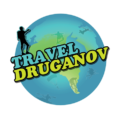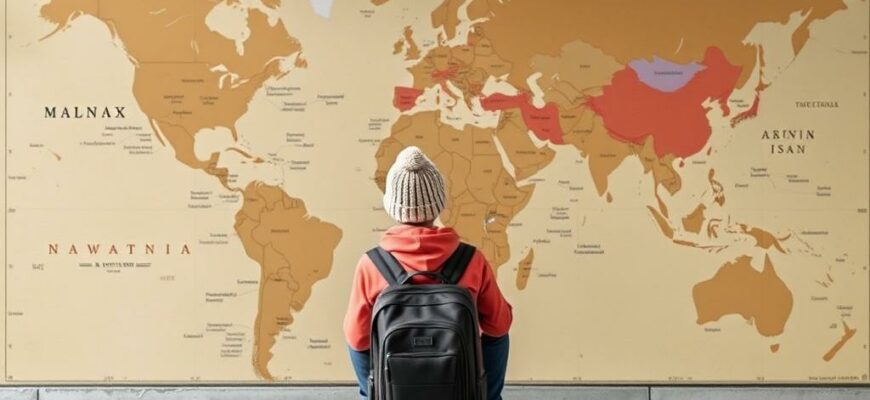Traveling the world independently is a dream for many. The idea of packing a backpack, setting off without a rigid itinerary, and exploring new cultures on your own terms sounds utterly liberating. However, while the adventure and freedom are indeed priceless, the reality of independent world travel comes with its share of unexpected costs that many first-time travelers don’t anticipate. Understanding these hidden expenses ahead of time can save you stress, money, and even some tears on the road.
When you decide to travel independently, your budget might initially seem straightforward: flights, accommodation, food, and local transportation. Yet, as your journey progresses, you’ll soon discover that there are many less obvious expenses that pop up along the way. These hidden costs can creep up from various aspects like health, documentation, communication, and even entertainment. In this article, we will delve into those unexpected costs of independent world travel, breaking them down so you can prepare better and enjoy your adventure without unpleasant financial surprises.
Why Independent Travel Has More Hidden Costs Than You Think
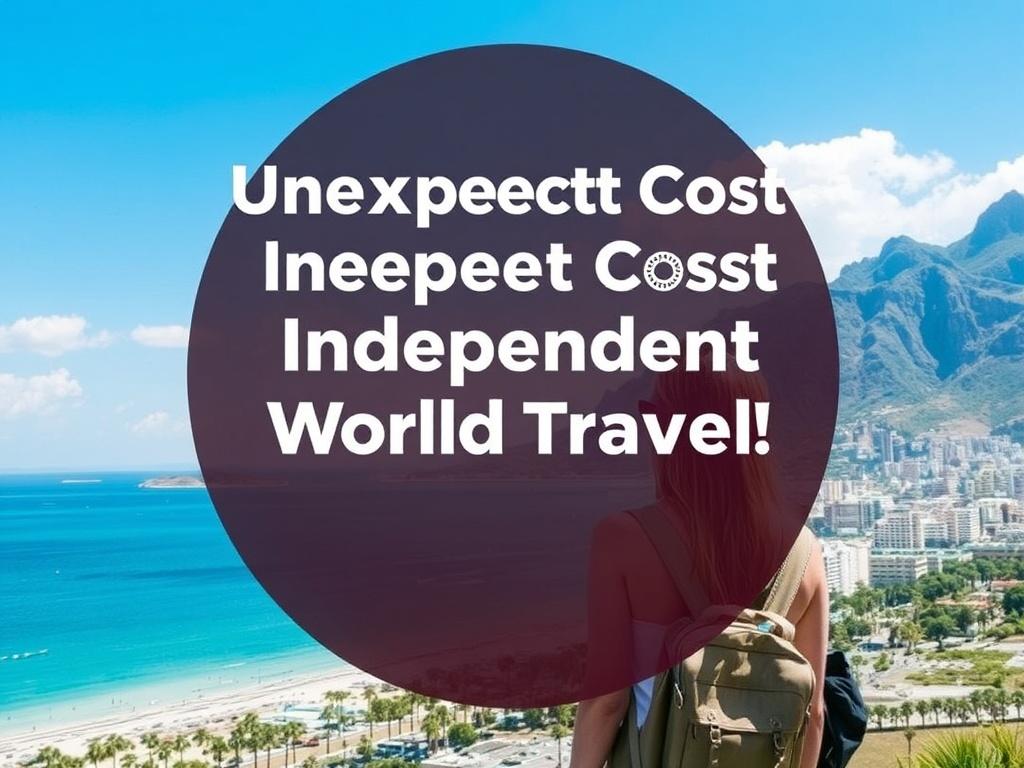
Most travelers begin their journeys with a clear budget plan that covers the basics. But when you are moving from place to place without the convenience of package tours or guided trips, you take on full responsibility for every detail and every expense. Unlike booked vacation packages where many costs are bundled, independent travel exposes you to unplanned expenditures.
One of the main reasons for these unexpected costs is the unpredictability of solo travel. You may face sudden changes in plans due to weather, health issues, or local events. These can lead to additional accommodation nights, last-minute transportation changes, or urgent needs for supplies. Additionally, traveling independently often means you do not get the discounts or deals that group travelers might enjoy, nor do you have support to navigate tricky financial situations abroad. It pays off to recognize these factors early.
Common Unexpected Costs to Watch Out For
At first glance, your travel budget might look something like this:
| Budget Category | Estimated Cost |
|---|---|
| Flights | $800 — $1,500 |
| Accommodation | $20 — $50 per night |
| Food & Drinks | $10 — $30 per day |
| Local Transportation | $5 — $15 per day |
This looks manageable, but here are some unexpected costs that usually don’t get included:
- Visa Fees & Documentation: Visa applications can come with non-refundable fees, especially if you need to extend your stay or apply for multiple-entry visas.
- Travel Insurance and Medical Emergencies: Emergencies happen. Often travelers overlook comprehensive insurance or underestimate the costs of medical treatment abroad.
- Connectivity Costs: SIM cards, Wi-Fi hotspots, or roaming fees often add up, particularly if you rely heavily on online maps, booking apps, or working remotely.
- Gear Replacement and Repairs: Your backpack, clothing, or gadgets may break or wear out, requiring replacements or repairs.
- Unexpected Accommodation Changes: Missed buses, lost bookings, or spontaneous detours might force you into pricier lodging options.
- Cultural Experiences and Entrance Fees: Many attractions have fees, and spontaneous cultural experiences that aren’t in your original plan can increase spending.
- Currency Exchange Losses & Foreign Transaction Fees: These can chip away at your spending money without you noticing.
Visa Fees and Documentation: The Hidden Hurdle
One of the first and often overlooked unexpected costs of independent world travel relates to visas and entry documents. Many countries require travelers to obtain a visa before arrival, and these fees can range from a modest $20 to several hundred dollars depending on the country and type of visa. Additionally, if your plans change or you want to extend your stay, you may face surprise extension fees or must visit immigration offices, which sometimes come with hefty fines if you overstay.
Moreover, certain countries require travel documents such as vaccinations certificates (think Yellow Fever), travel permits for protected areas, or even mandatory tourist taxes. If you don’t research these requirements properly before hitting the road, you could end up scrambling to meet rules at immigration or pay fines on the spot. Independent travelers should budget extra for these unpredictable administrative costs.
How to Manage Visa and Documentation Costs
- Research visa requirements thoroughly well before your trip.
- Apply for longer or multiple-entry visas if flexibility is important.
- Keep backup copies of all documentation digitally and physically.
- Check for vaccination and permit needs related to your route.
Sometimes paying a little extra to expedite visa issuance or consult a local immigration expert can save you from budget-busting fines or stressful delays later.
Health and Travel Insurance: A Cost You Can’t Skip
When health mishaps happen abroad, hospital bills or medicines can be shocking in cost, especially in countries where healthcare is expensive for tourists. Travel insurance is your safety net, but many travelers either skip it or underestimate the coverage they need, only realizing too late how expensive medical emergencies can be.
Remember that even minor injuries, unforeseen illness, or accidents during activities like hiking or diving may require costly treatments or evacuations. If you plan to travel to remote areas, you might also need emergency evacuation insurance, which can add to the policy cost.
In addition, vaccines, routine medications, and first aid supplies purchased abroad tend to be pricier than at home. This is all part of the unexpected medical expenses that add to your travel bill.
Tips to Reduce Health-Related Travel Costs
- Buy a comprehensive travel insurance policy tailored to your activities and destinations.
- Keep a basic medical kit handy to avoid paying exorbitant pharmacy prices.
- Look after your health proactively to prevent preventable illnesses on the road.
Remember: “Unexpected costs of independent world travel” often strike hardest when you least expect them — like an emergency hospital visit in a foreign language.
Staying Connected: The Increasing Cost of Communication
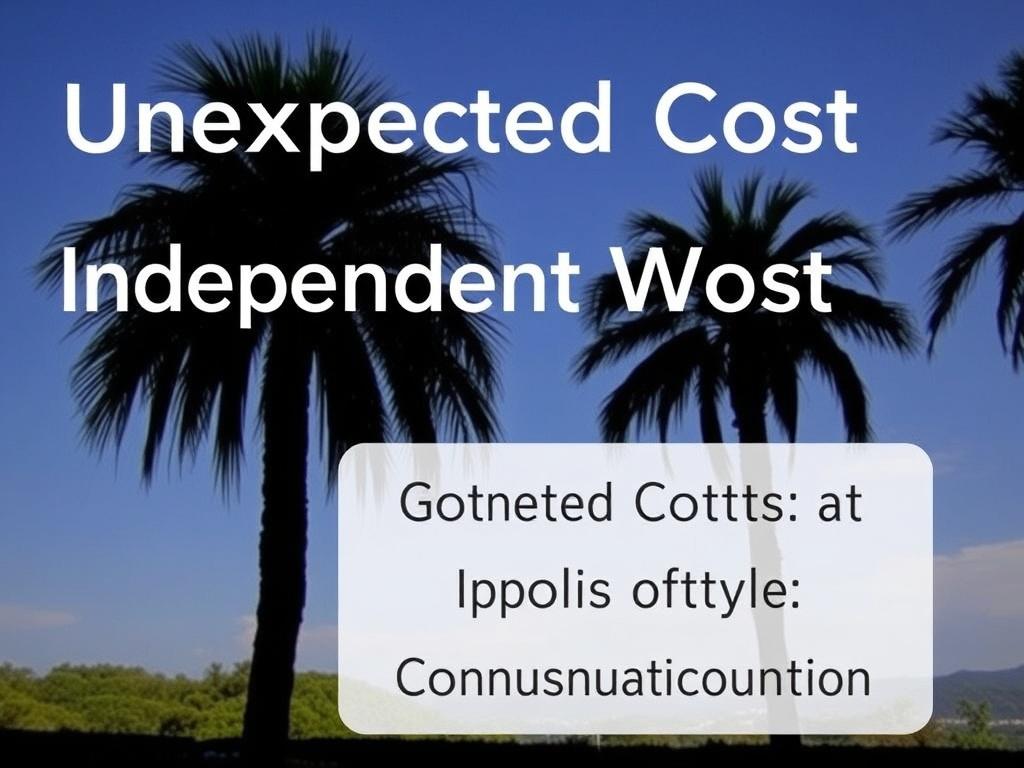
In today’s world, connectivity is crucial for navigation, safety, keeping in touch, and sharing your journey. But staying connected while traveling independently usually comes with its own hidden costs. While free Wi-Fi is available in many cafes or hostels, it is often slow or unreliable. Relying solely on it could result in missed bookings or being stranded without directions.
Purchasing local SIM cards frequently emerges as a solution, but in many countries, these require registration, come with limited data packages, and cost more than expected. Additionally, if you hold onto your home-country SIM to keep your phone number, roaming charges can escalate rapidly without prepaid international plans.
Portable Wi-Fi hotspots or data plans for digital nomads also add to your budget, and if you rely on your phone or laptop for work, these expenses become essential rather than optional.
Strategies for Managing Connectivity Costs While Traveling
- Research the best local SIM and data plan options for each country on your itinerary.
- Use offline maps and apps wherever possible to reduce data reliance.
- Consider portable Wi-Fi devices if you need stable internet while on the move.
- Leverage free Wi-Fi spots for heavy downloads or video calls but avoid risky unsecured networks.
Planning for these communication costs is vital, especially as they can otherwise quietly eat up a significant chunk of your travel budget.
Gear and Equipment: The Cost of Staying Ready
One of the most exciting parts of independent world travel is packing your gear and traveling light. However, this also means that when something breaks or wears out, you’re the one responsible for repairs or replacements, often in unfamiliar settings where parts or expertise are hard to come by.
From worn-out shoes and lost chargers to stolen or broken cameras, these expenses add up. Certain activities may require specialized gear or permits, and last-minute purchases or rentals at tourist prices can be surprisingly expensive.
For digital nomads or travelers who blog or vlog, upgrading electronics like laptops, cameras, or phones can also be an unexpected cost that doesn’t get factored into the initial budget.
How to Mitigate Gear and Equipment Expenses
- Invest in quality, durable gear before you leave to minimize breakdowns.
- Carry essential repair kits (like sewing kits, duct tape, multi-tools).
- Research service centers or shops in advance at your travel destinations.
- Consider insurance for expensive electronics or gear.
Being prepared means avoiding the hassle and cost of emergency gear purchases on the road.
Accommodation and Transportation Surprises
Independent travel requires flexibility, but sometimes that flexibility comes with a price. You may face unexpected accommodation changes due to cancellations, festivals, or overcrowding. Last-minute hotel or guesthouse bookings often come at premium rates. Even planned hostel stays might require paying extra for lockers, towels, or late check-ins.
Transportation costs can also fluctuate unexpectedly. Missed buses or trains, strikes, or route changes might force you into taxis or flights at peak prices. Also, local transportation might not be as cheap as you thought, especially if you need to use taxis instead of public transit for safety or convenience.
Tips to Save on Accommodation and Transportation
- Book important stays in advance during high seasons or festivals.
- Keep a list of budget-friendly alternatives nearby in case of cancellations.
- Confirm transportation schedules ahead and have backup options.
- Consider travel insurance that covers cancellations or delays.
Ultimately, flexibility is valuable, but it’s wise to prepare financially for these hiccups before they occur.
Experiences, Entertainment, and Cultural Events
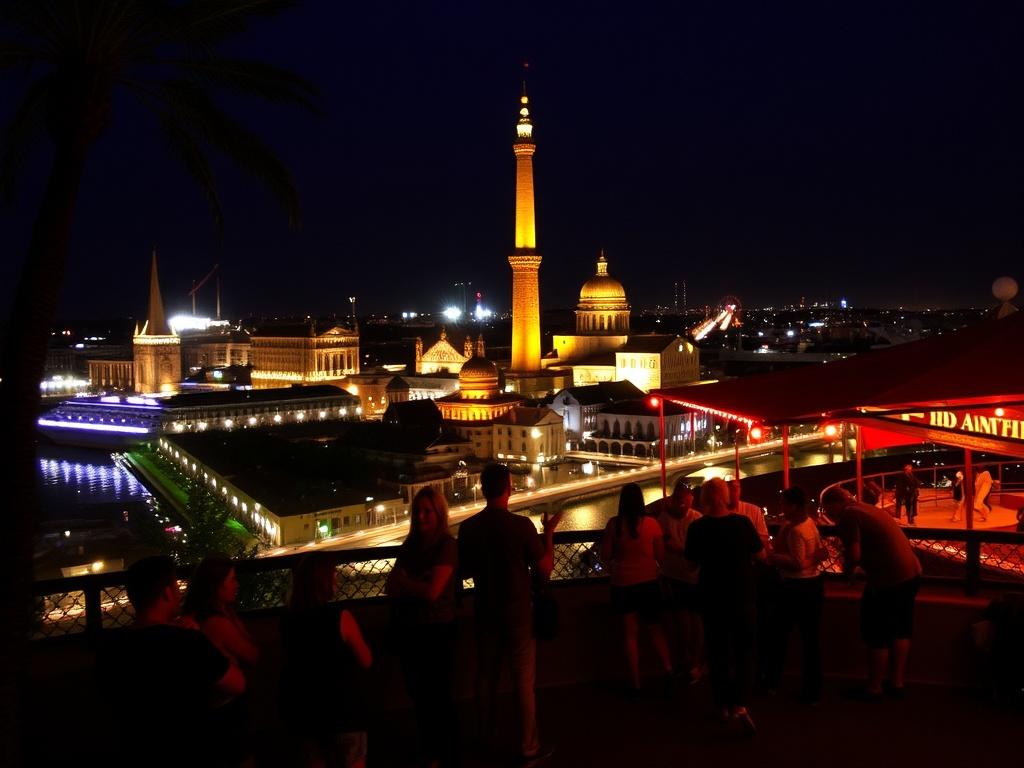
While traveling independently, it’s tempting—and often necessary—to say “yes” to interesting local experiences, tours, or cultural events that weren’t planned initially. The problem is, these experiences frequently come with ticket fees, guide costs, equipment rentals, or strict no-negotiation prices.
Even something as simple as a spontaneous cooking class, wildlife excursion, or performance can add unexpected costs to your daily spending. Socializing and hospitality, such as treating new friends or participating in group outings, compound these expenses.
Balancing Budget and Adventure
- Set aside an “experience fund” separate from your daily expenses.
- Prioritize which cultural activities mean the most to you.
- Seek free or low-cost local events and festivals.
- Negotiate prices politely where appropriate but respect local customs.
Keep in mind, these unexpected costs are often the most rewarding parts of your journey, so budget smartly but allow room for spontaneity.
Currency Exchange and Bank Fees: The Silent Budget Drainers
Even with careful planning, many independent travelers get hit by currency exchange losses and bank-related fees more than they expect. Using airport kiosks for currency exchange, withdrawing cash from foreign ATMs without advance planning, or swiping credit cards with foreign transaction fees can quietly drain your funds.
Small but frequent charges like currency conversion spreads, ATM fees, or minimum purchase fees pile up over time, cutting into your effective budget.
How to Minimize Currency and Banking Costs
- Use travel-friendly credit and debit cards with no foreign transaction fees.
- Withdraw larger sums less frequently to minimize ATM charges.
- Avoid airport currency exchanges when possible; use local banks or official offices.
- Keep track of exchange rates and fees for better timing.
These simple precautions help keep more of your travel money working for your adventures rather than disappearing into hidden fees.
Final Thoughts on Managing Unexpected Costs of Independent World Travel
Independent world travel is undoubtedly one of life’s greatest adventures. Yet, it is also a journey into unpredictability—financially as much as experientially. Unexpected costs can come from seemingly mundane things like visas, health emergencies, or poor connectivity, to exciting opportunities like spontaneous tours or events. The key to thriving in this unpredictability is foresight and flexibility. By understanding these hidden expenses, planning a buffer in your budget, and equipping yourself with strategies to manage surprises, you can travel farther, longer, and with peace of mind. Independent travel is about freedom, but true freedom comes with being smart and prepared.
Conclusion
Traveling the world independently is more than just booking flights and choosing hostels—it’s about navigating a myriad of unforeseen expenses that can catch even seasoned travelers off guard. From visa fees to health emergencies, communication costs, gear replacements, and beyond, understanding the unexpected costs of independent world travel is essential for any traveler who wants to enjoy their journey fully and worry less about money. The good news? With careful planning, research, and a flexible mindset, you can anticipate these financial surprises and turn them into part of your enriching travel story rather than burdens. So, pack your bags, but don’t forget to pack a bit of extra cash and common sense too—your future self will thank you!
